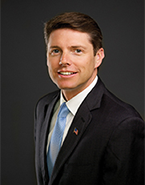Assemblyman Jones: Assembly Passes Equal Pay Legislation on Equal Pay Day
In conjunction with National Equal Pay Day on April 4, Assemblyman Billy Jones (D-Chateaugay) announced he passed a series of bills to help close the gender pay gap in New York State. Equal Pay Day marks how far into the new year women must work to catch up to what their male counterparts made during the previous year.
“It’s unfortunate that we’re still facing this issue in 2017, but I’ll keep fighting until each and every woman is treated equally in the workforce,” Jones said. “Women work just as hard as men and their wages should reflect that.”
Wage discrimination robs women of hundreds of thousands of dollars throughout their lifetimes. Nationally, women earn 80 cents for every dollar a man earns. New York is closest in the nation to closing the pay gap, but there’s still much work to be done.
Current law does not adequately address the pay gap. In order to bridge the gap and increase fairness, the legislative package includes the New York State Fair Pay Act to address and enforce pay equity, including broadening equal pay protections to include equivalent jobs and ensuring that traditional female and minority jobs are not undervalued (A.4696).
The package also includes a measure to implement a state policy of wage equality for state and municipal employees, as well as direct the Civil Service Commission to study and publish a report evaluating existing disparities among public employers to highlight where and how they exist (A.658, A.2549). This provision will go a long way to ensuring equal pay for equal work regardless of gender, race and national origin, Jones noted. Further, another measure ensures the state complies with the federal Equal Pay Act of 1963 and the Civil Rights Act of 1964 and gives public employees a private right to sue for compensation and enforce equal pay disparities (A.2425).
“Wage discrimination hurts women and their families. It’s time we put an end to it,” Jones said. “These measures target the systemic challenges that keep women lower on the economic totem pole.”
